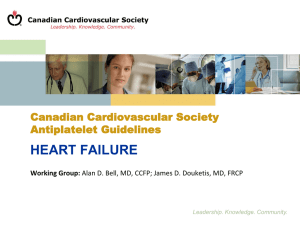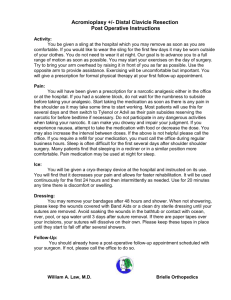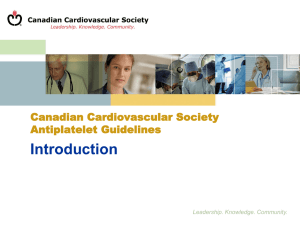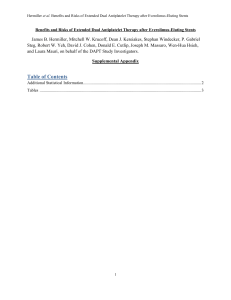resistance to routine antiplatelet medication and the efficacy of long
advertisement
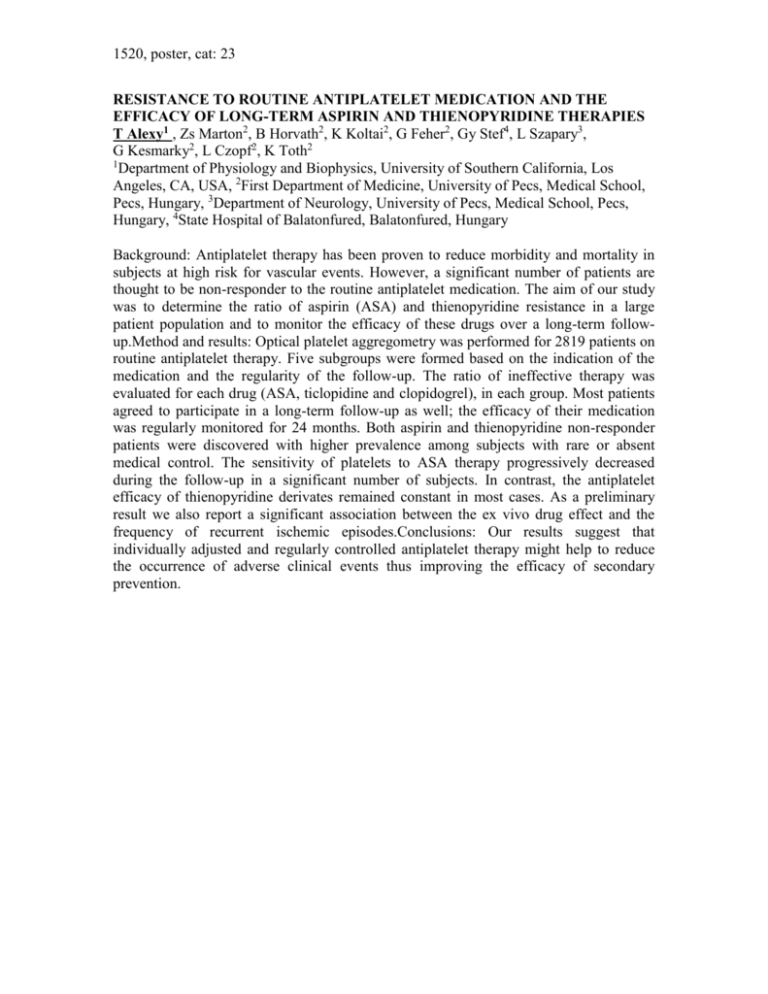
1520, poster, cat: 23 RESISTANCE TO ROUTINE ANTIPLATELET MEDICATION AND THE EFFICACY OF LONG-TERM ASPIRIN AND THIENOPYRIDINE THERAPIES T Alexy1 , Zs Marton2, B Horvath2, K Koltai2, G Feher2, Gy Stef4, L Szapary3, G Kesmarky2, L Czopf2, K Toth2 1 Department of Physiology and Biophysics, University of Southern California, Los Angeles, CA, USA, 2First Department of Medicine, University of Pecs, Medical School, Pecs, Hungary, 3Department of Neurology, University of Pecs, Medical School, Pecs, Hungary, 4State Hospital of Balatonfured, Balatonfured, Hungary Background: Antiplatelet therapy has been proven to reduce morbidity and mortality in subjects at high risk for vascular events. However, a significant number of patients are thought to be non-responder to the routine antiplatelet medication. The aim of our study was to determine the ratio of aspirin (ASA) and thienopyridine resistance in a large patient population and to monitor the efficacy of these drugs over a long-term followup.Method and results: Optical platelet aggregometry was performed for 2819 patients on routine antiplatelet therapy. Five subgroups were formed based on the indication of the medication and the regularity of the follow-up. The ratio of ineffective therapy was evaluated for each drug (ASA, ticlopidine and clopidogrel), in each group. Most patients agreed to participate in a long-term follow-up as well; the efficacy of their medication was regularly monitored for 24 months. Both aspirin and thienopyridine non-responder patients were discovered with higher prevalence among subjects with rare or absent medical control. The sensitivity of platelets to ASA therapy progressively decreased during the follow-up in a significant number of subjects. In contrast, the antiplatelet efficacy of thienopyridine derivates remained constant in most cases. As a preliminary result we also report a significant association between the ex vivo drug effect and the frequency of recurrent ischemic episodes.Conclusions: Our results suggest that individually adjusted and regularly controlled antiplatelet therapy might help to reduce the occurrence of adverse clinical events thus improving the efficacy of secondary prevention.
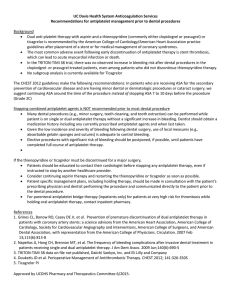
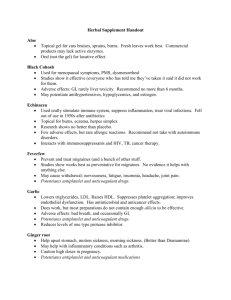
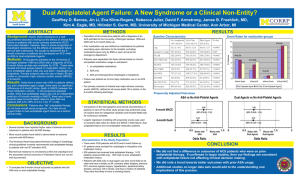

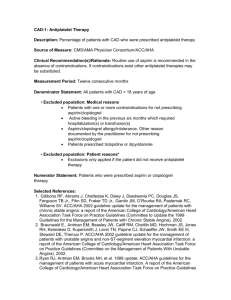
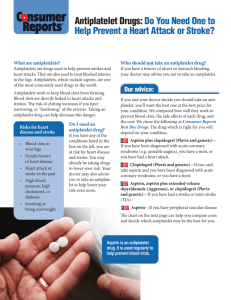

![Quality assurance in diagnostic radiology [Article in German] Hodler](http://s3.studylib.net/store/data/005827956_1-c129ff60612d01b6464fc1bb8f2734f1-300x300.png)
